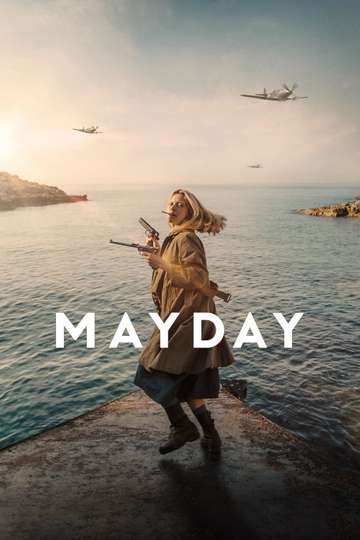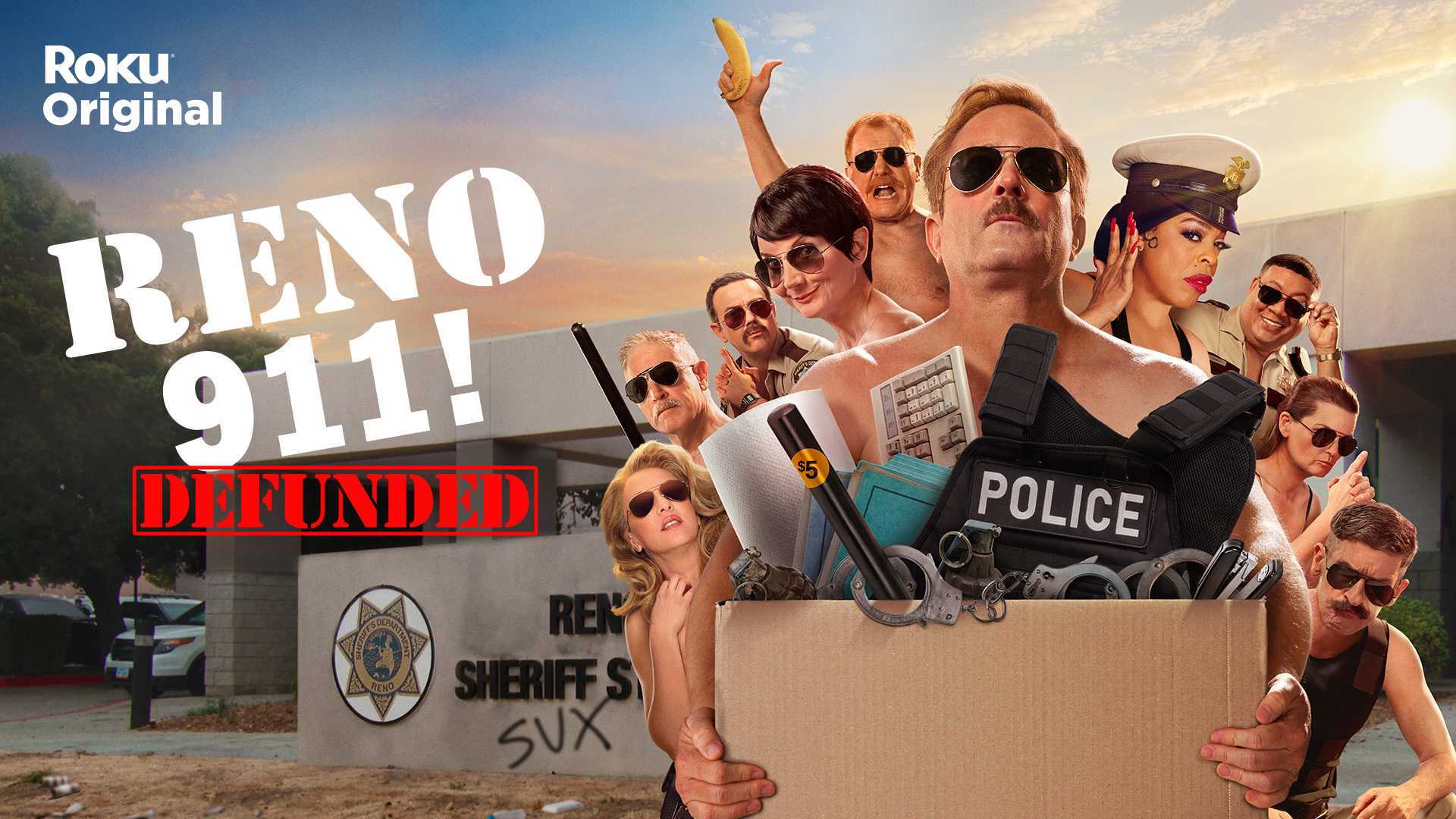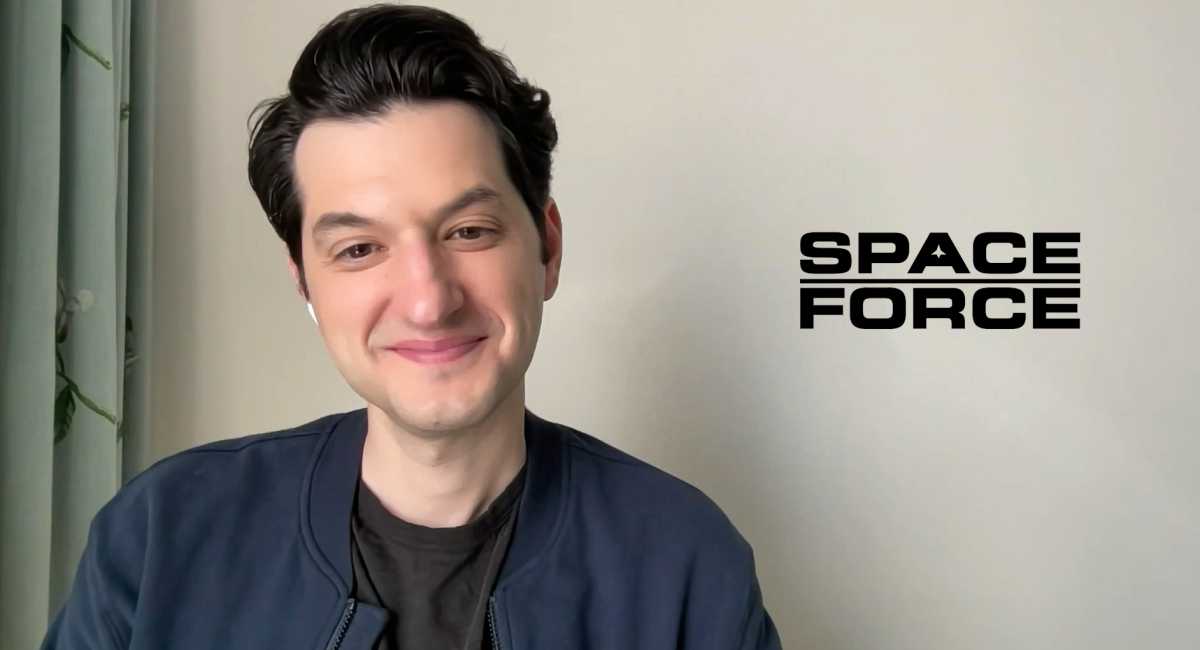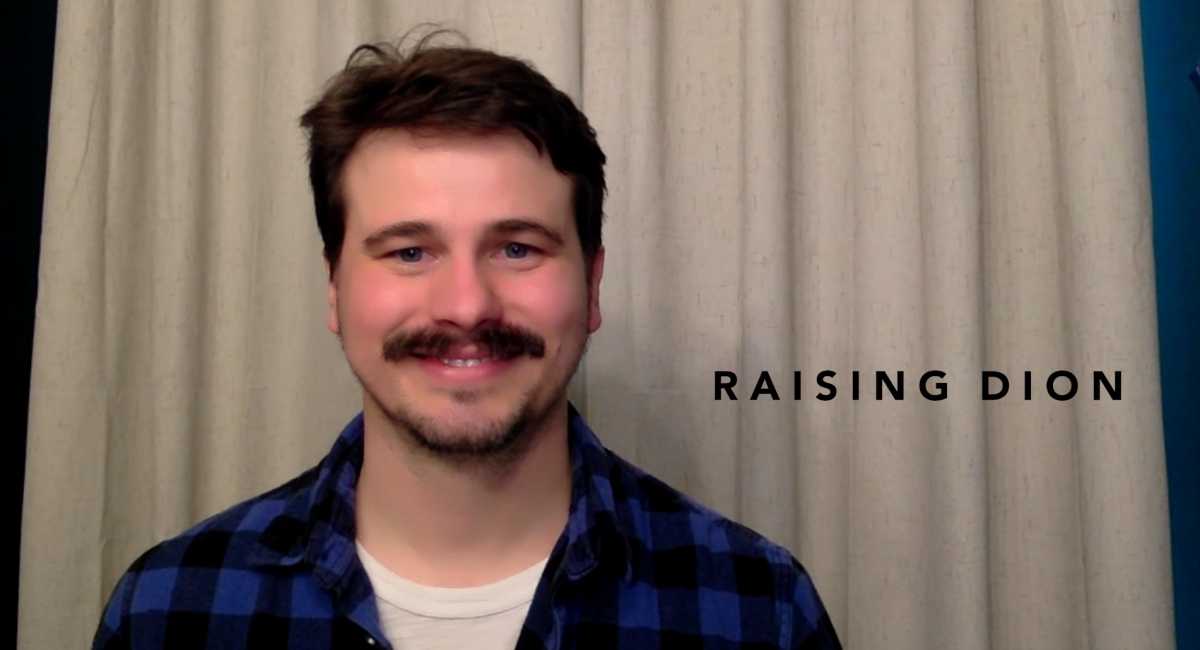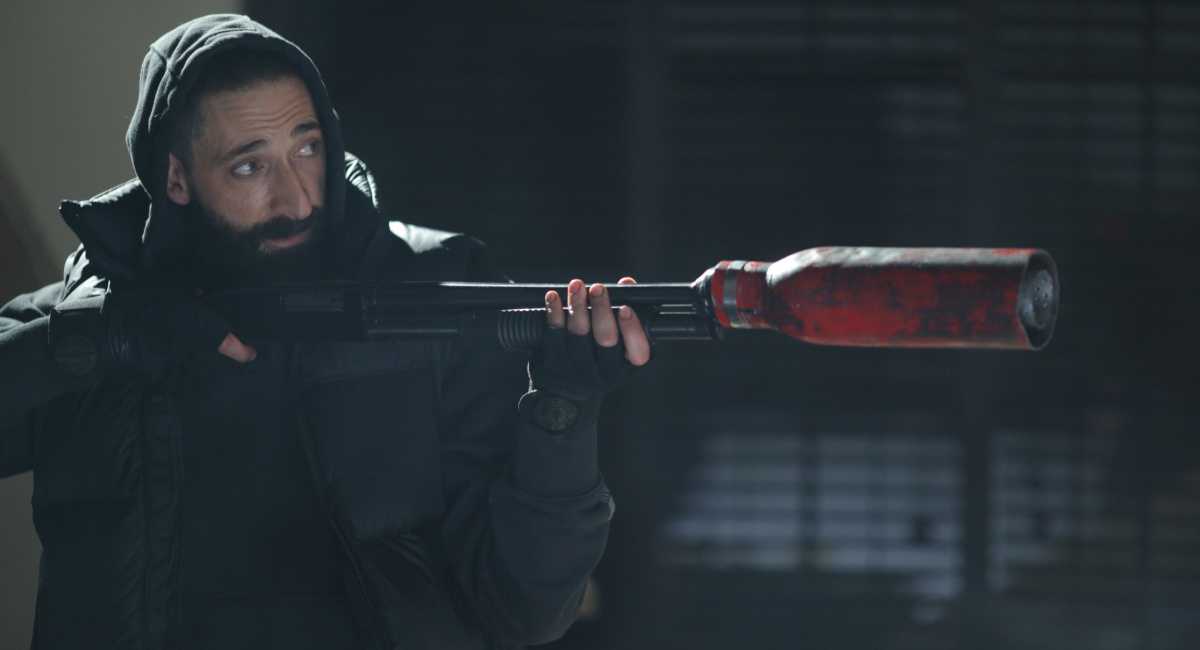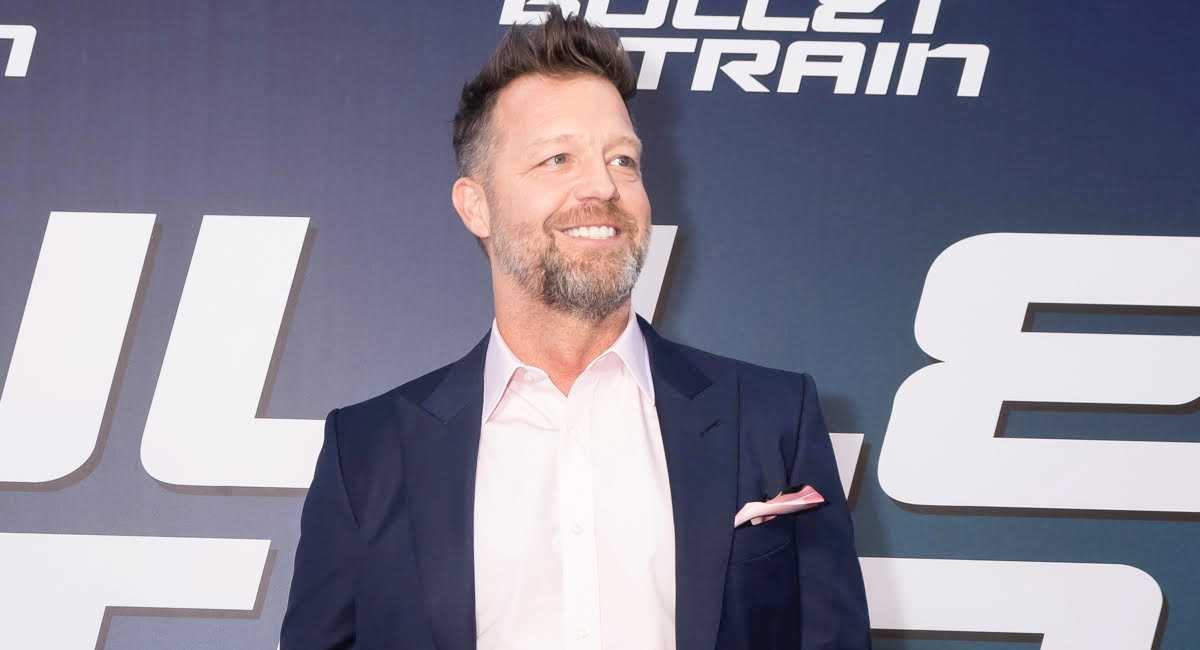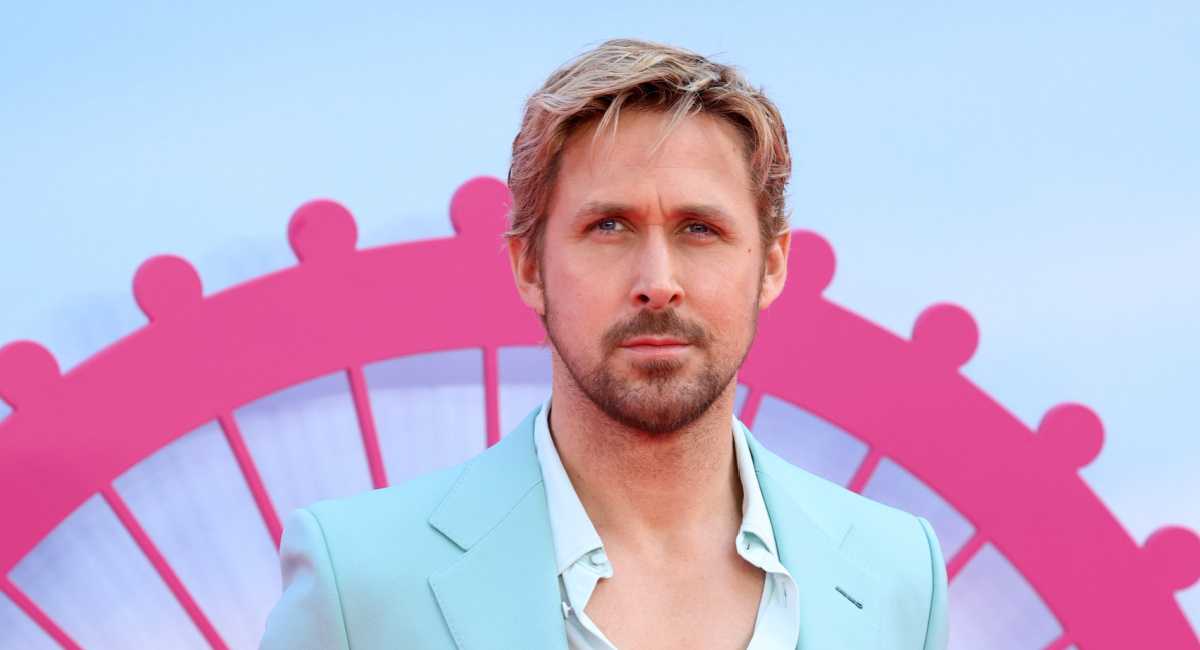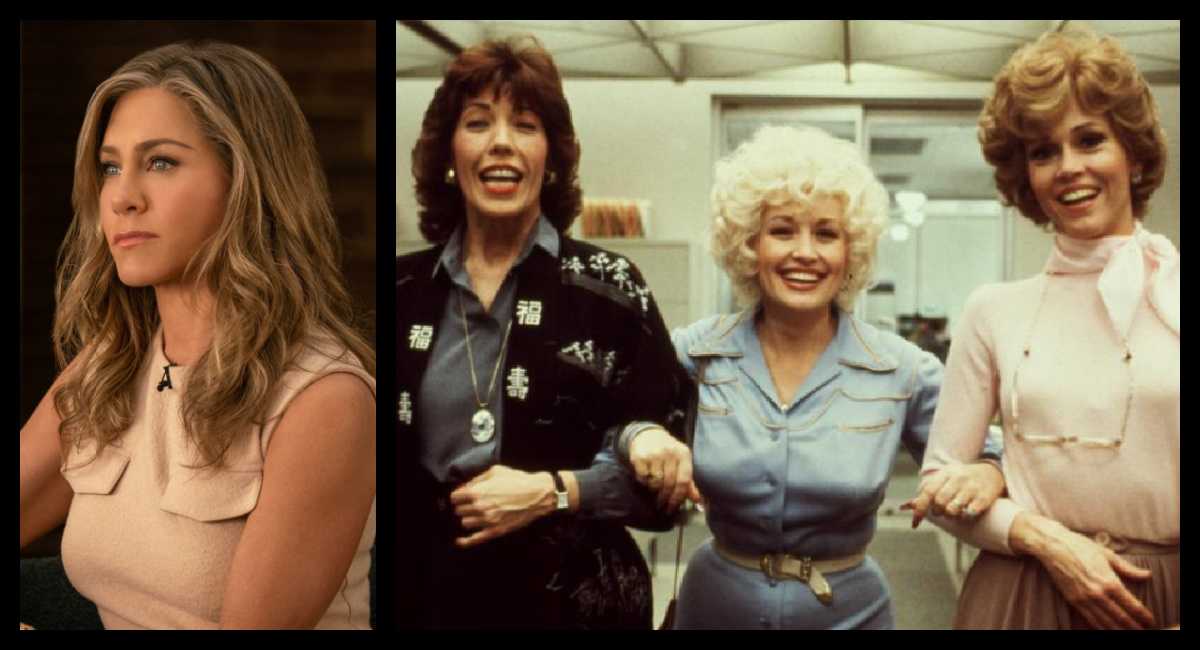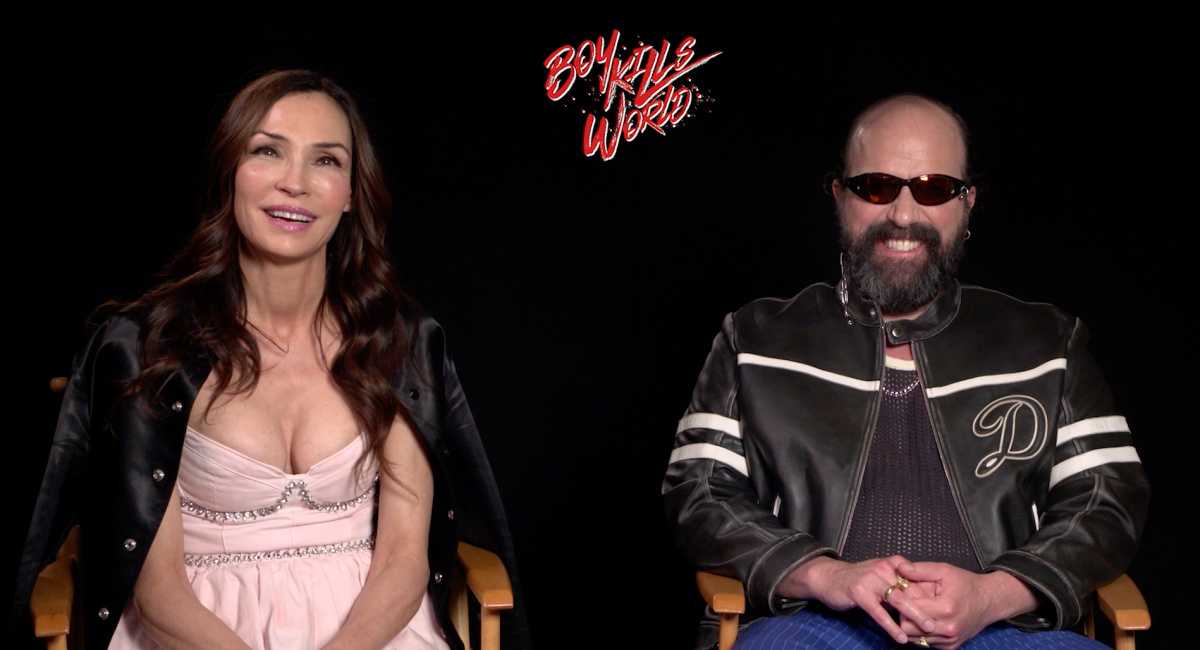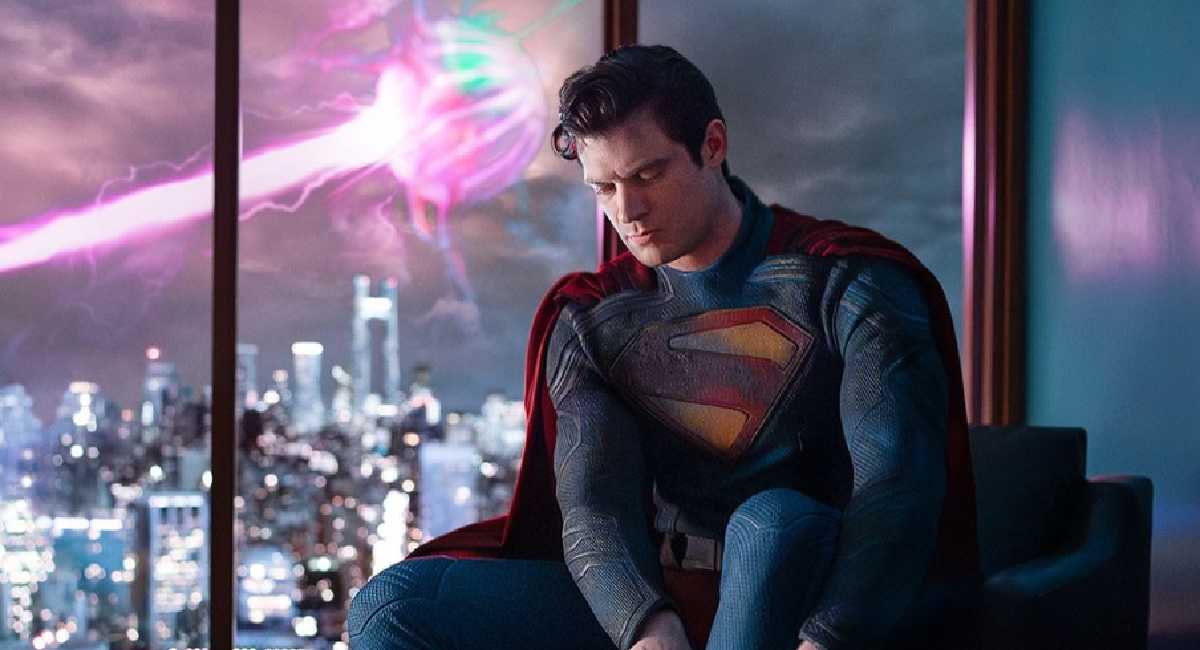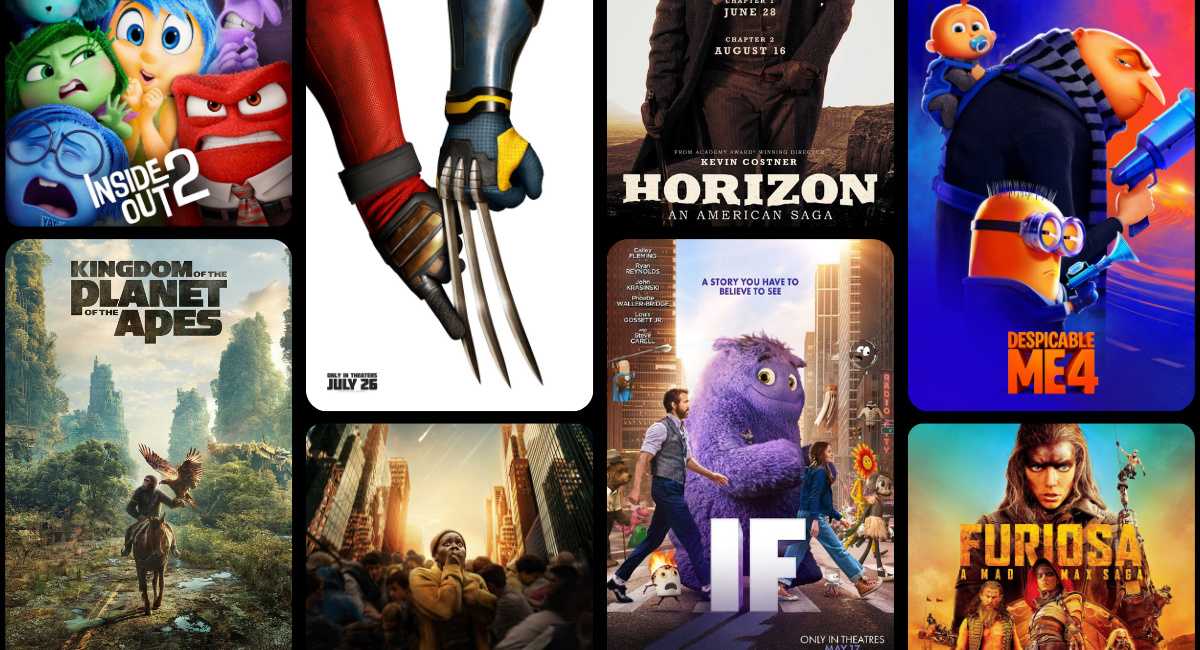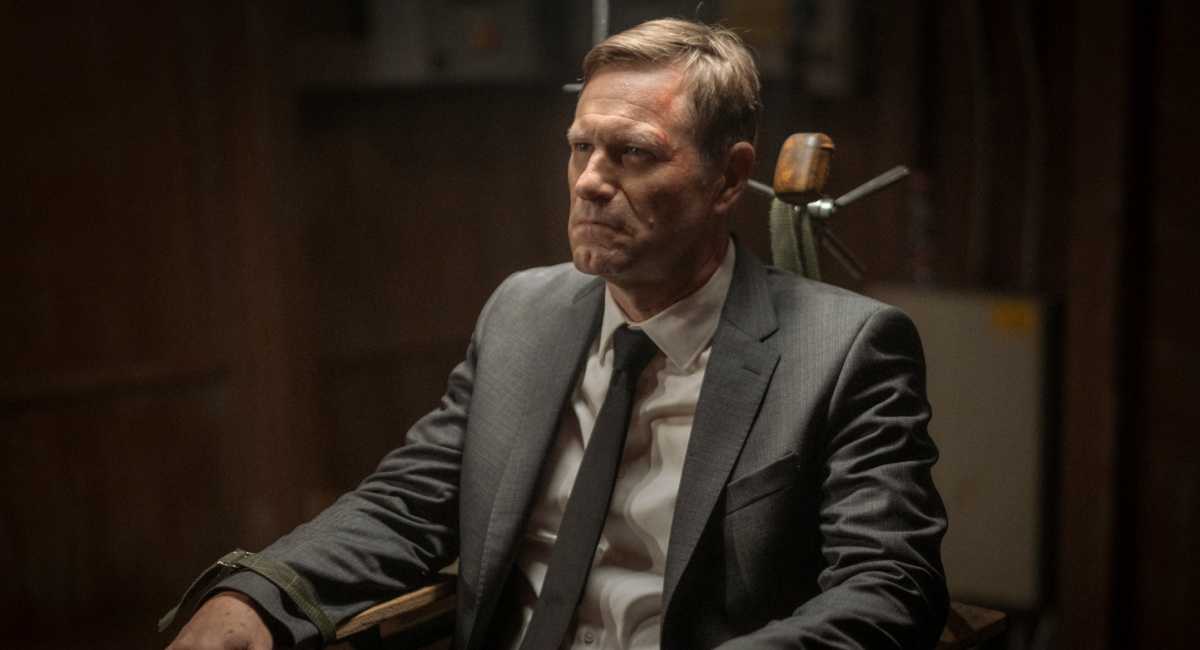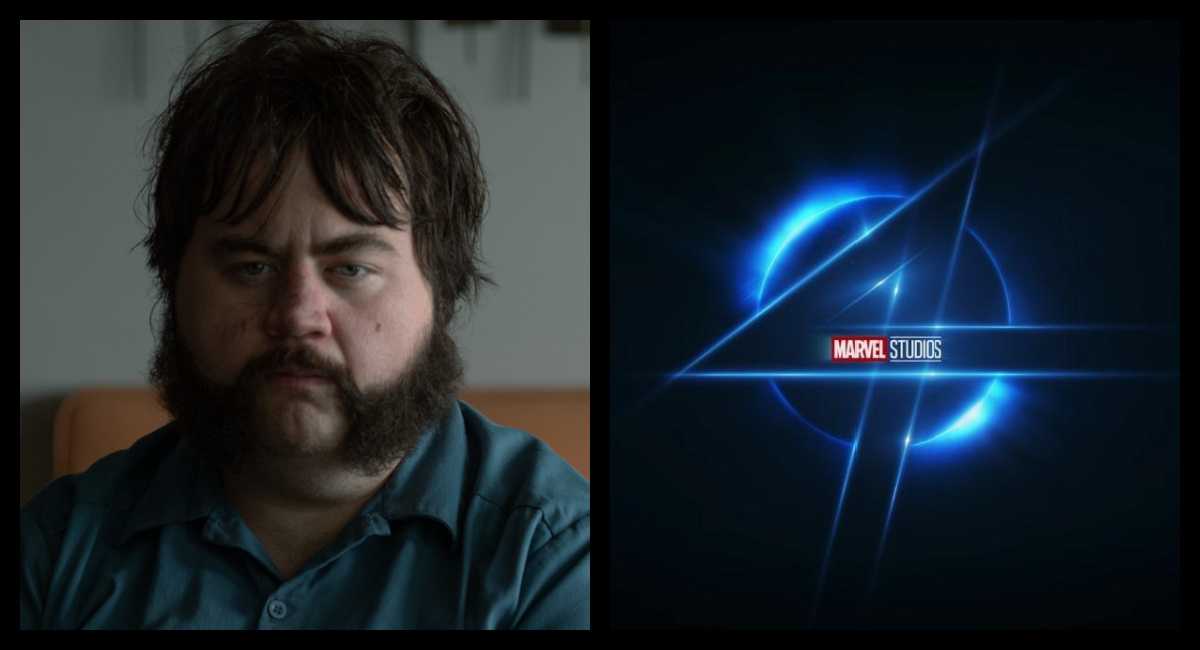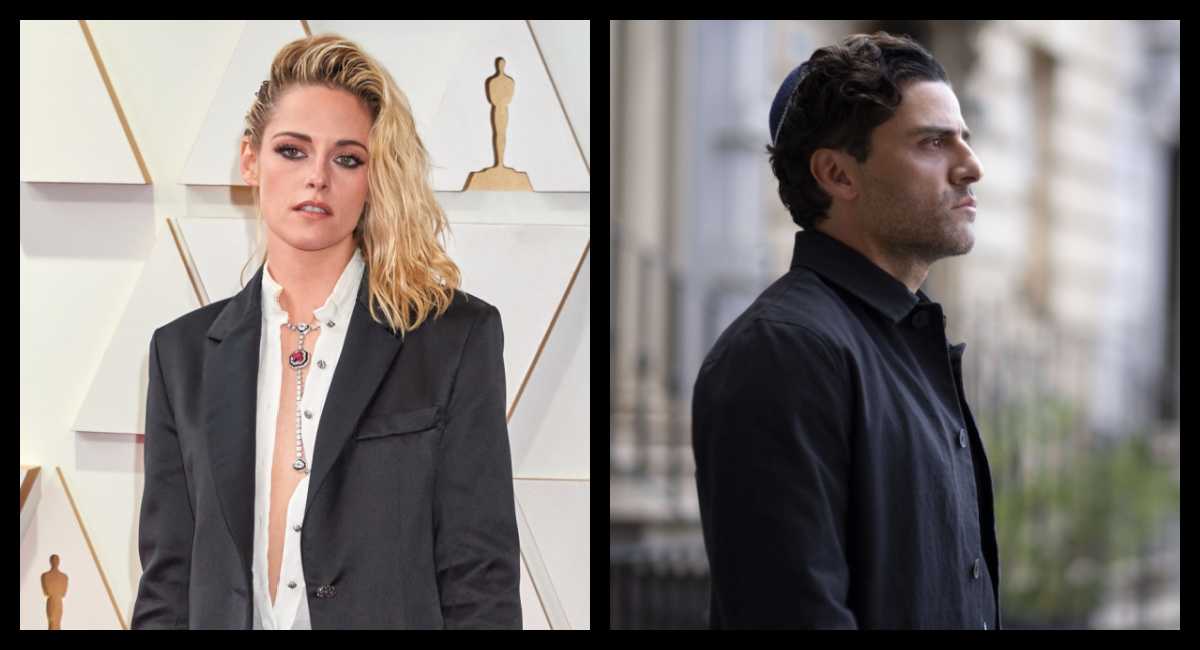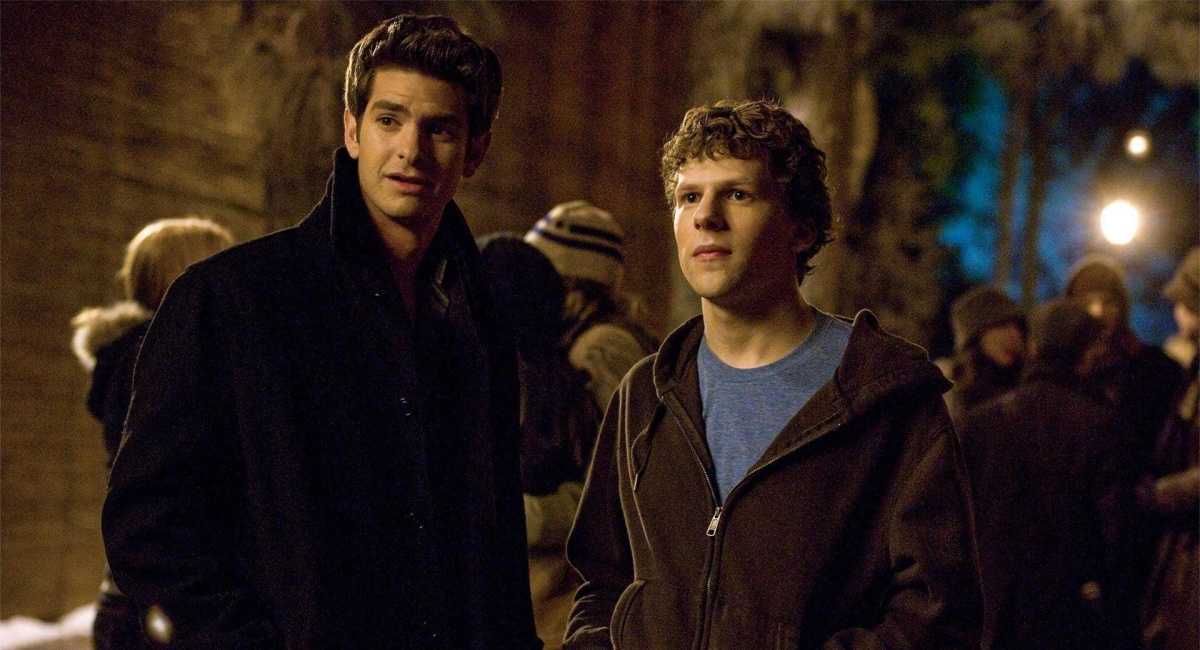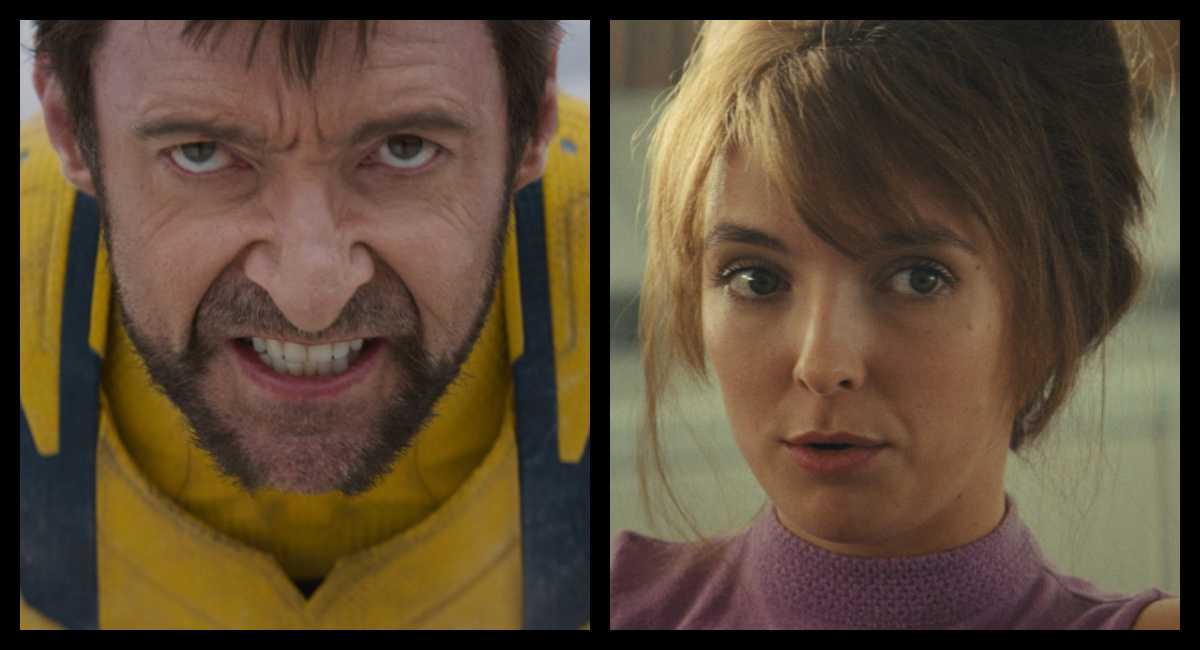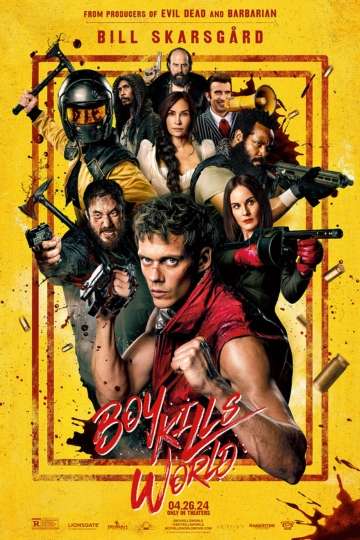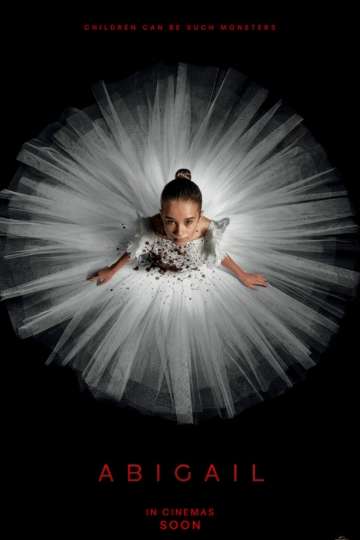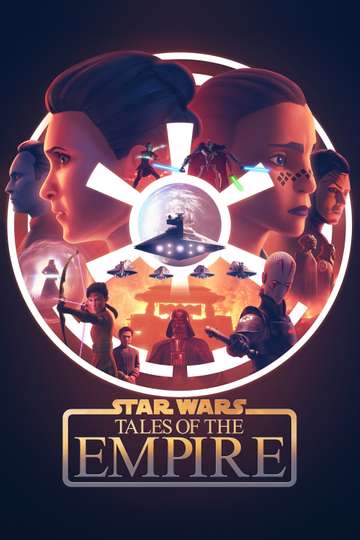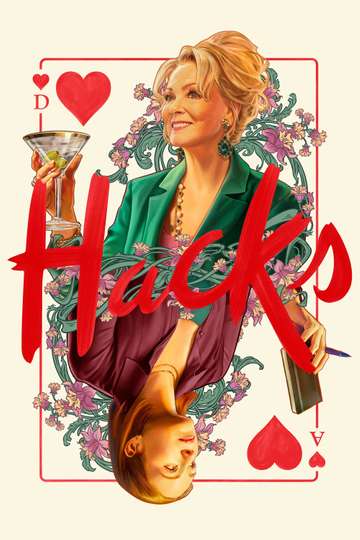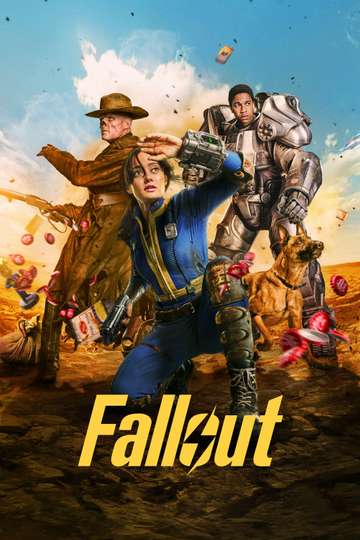‘Mayday’ Stars Grace Van Patten & SoKo Join Director Karen Cinorre To Talk About Their Dramatic Thriller
The stars and director talk about working in Croatia how the time they spent together helped them bond as a team.
In ‘Mayday,’ a woman named Anna (Grace Van Patten) finds herself transported to another place and time, where she and other women are fighting a war. Grace Van Patten, her co-star Soko, and writer/director Karen Cinorre recently spoke to Moviefone about their new movie.
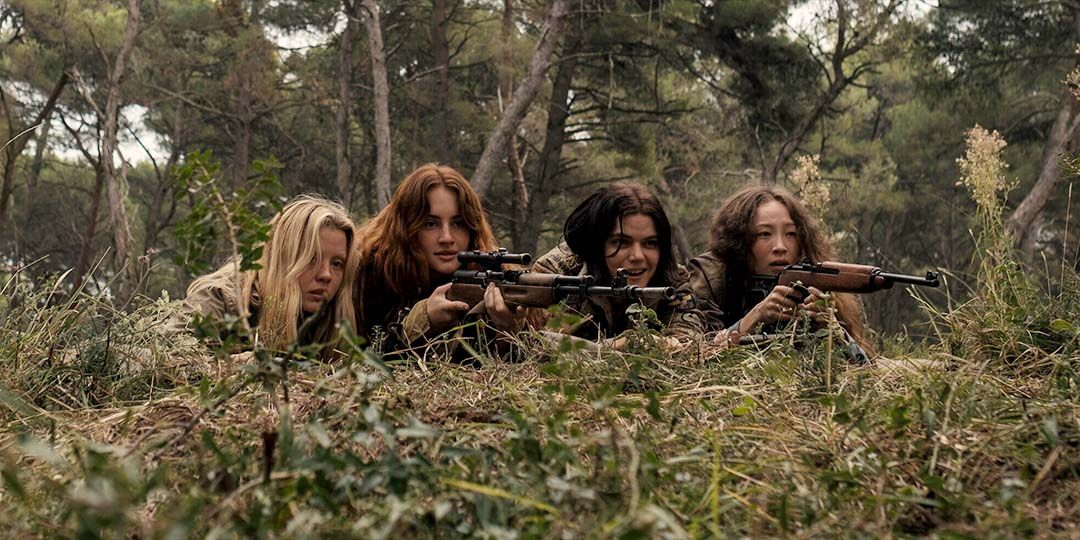
(L to R) Mia Goth, Grace Van Patten, SoKo, and Havana Rose Liu in 'Mayday'
First up, Grace Van Patten describes her character and what it’s like to be in every scene of a movie.
Moviefone: Could you start off telling us a little bit about your character, Anna, in this movie?
Grace Van Patten: Yes. Anna is a very fragile, broken girl when you first meet her and really goes through this journey throughout the movie in finding her inner strength and power to move on. It's really told in such a fantastical, unique way that I was so drawn to when I read this script. It's really a beautiful story about sisterhood and female empowerment. I'm so excited for the world to see it.
MF: I'm curious as to what the script read like when you first read it.
Van Patten: I've never read a script more than I read ‘Mayday.’ I read it so many times over and over because it's a bottomless pit of meanings and different interpretations, and you could really go anywhere with it. Definitely, a big part of it was making sure all the girls were on the same page because it really, it could go in so many different directions, which is a reason I loved it, that I think anyone can find their own meaning in it and their own interpretation. The tone was so unique, and I thought it had this eeriness to it, a magic and a fantasy. It's just nothing I've ever read had or seen before, really. Karen really brought what she wrote to life. It translated almost exactly how she wrote it and how she spoke about it, which is such an ode to her because that's so hard to do, but she just knew exactly what she wanted visually and tonally.
MF: Where did you shoot this movie?
Van Patten: We shot it in Croatia.
MF: It's beautiful, beautiful coastline that you're shooting on.
Van Patten: It's so gorgeous, and it looked like that in real life.
MF: How long were you there for?
Van Patten: Two and a half months, maybe.
MF: That's a long shoot. When you're right on the coast like that, do you have any days where you say, "I just kind of want to relax on the beach or relax by the shore."
Van Patten: Oh, yeah. Our weekends, we would just be swimming. We were all in the same hotel, so we would just jump in the water. It got cold as it went on, but it was amazing being able to be in the water every day.
MF: You're all in the same hotel, that makes me think that's a chance for you guys to all really bond. I think that shows on camera. What's that like for you as a performer to have that opportunity?
Van Patten: It was so empowering. I've never worked with, basically, only women before, and that was a huge part of why I wanted to do it. I can't compare it to any other experience. It was so safe and comfortable and collaborative. These women are so badass and talented, and it was so empowering to be around them.
MF: One of the cool things about this movie is, I think that it would not pass the reverse of the Bechdel test, because there are no named male characters that have a conversation that's not about a woman.
Van Patten: Right.
MF: That's got to be a rare treat.
Van Patten: Yeah, it's so unique in every way. I think you can compare the characters to other characters, but in terms of the world that Karen built, it's really… when I finished watching it for the first time, which I haven't seen on a big screen yet, so I'm very excited, but I really had to blink my eyes, I was really transported and those were my favorite types of movies, that I feel like I'm just living in that world for two hours or however long movie is, and I love when that happens.
MF: You're in almost every scene of this film, almost every shot. What does that mean for you as a performer?
Van Patten: It was a lot. I've never done that before, so it was new for me, but so amazing because it forced me to really track everything and make sure, especially with this movie, it was so important that there was a journey and that it was evident, because in this fantasy land, things can get lost. Things can be strictly metaphorical, but we wanted to make sure that Anna had a definite journey that you saw, and that was evident. Really, thinking about before every scene, "Where are we in the movie? Has she killed anyone yet? Is she still broken? Is she gaining her power yet? Is she at full power right now?" It was really cool to be able to track that very closely,
MF: There's a fair amount of seeing Anna on a motorcycle, when you're shooting that, I'm guessing, are you towed behind something for those kinds of tight shots of you?
Van Patten: I wished I was riding it myself, but that was a no-go.
MF: There's a terrific dance scene. How long does that take to choreograph, and what's it like shooting something like that?
Van Patten: That was so fun. We choreographed that just in one day. The men had a whole different number, but I got to just jump in their arms and, hold their ties. I didn't have much to do, but that was such an amazing scene, and I thought such a weird, unique way to tell the story.
MF: I've read a couple of reviews that at least one person said they want to see Karen do a musical.
Van Patten: I was just saying that in the last interview. I was like, "We need 'Mayday' the musical." A strictly dance version.
MF: I would watch that! The submarine sets, I guess it goes around a sound stage someplace, right?
Van Patten: Yes, the inside was in a stage, and it was unreal. They did such an incredible job. It was so specific and so detailed. The second we walked into it, we all started tearing up. We were like, "This is our home, this is it, we've lived here for forever." It felt like it just threw us right into it. It was so amazing.
MF: What's the weapon training like?B ecause Anna picks a lot of stuff up pretty fast and turns out to be really talented.
Van Patten: We had a few days of weapon training, gun training. Anna definitely has an eye.
MF: One of the lines I loved was when Marsha says, why women are such good snipers. They can not be seen, and they can be uncomfortable for hours on end. What's that like reading that line in the script?
Van Patten: That was, ooh, it's hard to read because you're like, "Oh my gosh." It's the fact that we all know what she's saying is so crazy to me, but is a huge message in the movie. These women finding their power and going against what society has put them through, and Anna finding that for herself.
French musician and actor Soko talks about her character and having to smoke for the movie.
Moviefone: Can you tell me a little bit about your character, Gert, in this?
Soko: Yes. Gert's badass, kicks asses. She's super strong, super guarded, isn't afraid of anything other than her weaknesses, that she's extremely afraid of losing her friends. And that is what keeps her grounded, and that is what keeps her safe. So when you realize that any of her friend could be in danger, she realizes that she's actually a softie and super vulnerable and extremely sensitive. She would do anything to protect her friends. Her trajectory in that sense is quite beautiful because you don't really expect that from a character like her.
MF: How did the script read? Because the movie is so dreamlike, but also grounded in a way.
Soko: You know? I don't know, I was reading it kind of like not really knowing. Then talking to Karen was so incredible and was the convincing part of it, because her vision was so special. She's so passionate, she's so clear and such a visionary. It's like she is a visual artist, she talks poetry, she's a real artist. And so that was the part that I was like, whatever this woman does, I want it. She is awesome. She's very special. And there's not a lot of people out there like her.
Then seeing the rest of the cast and everything that she was drawn to was the same kind of people that I would be drawn to too. Doing the first table read, and hearing all of them talk and hear the lines in all of their voices and laugh at moments where I didn't really think it was funny at all when I read it, I didn't even see how that could be funny. But hear and see everyone doing it was just amazing, like really seeing it come to life and understand Karen's vision with meeting everyone and doing a table read was super gratifying.
MF: I just talked to Grace, and she mentioned that when you shot in Croatia, you were all staying at the same hotel...
Soko: Except me.
MF: Except you, but you were all in Croatia together.
Soko: Yes.
MF: So that had to be a really great experience. What's that mean for you as a performer to be able to spend that much extra time with your cast?
Soko: Well, so here's the thing. I was a very young mom when we shot. I mean, my kid was very young. So I had an apartment because I needed to have laundry and a kitchen. So I was very close to the hotel. But because my kid was so young, every time that I had, I wanted to just be with my kid. So I was a little bit more removed, but then the girls would come and hang out at the apartment. We had a few weekends where we did stuff together, and I get to meet Grace's family and meet Havana's partner.
Mia [Goth], Grace and I all had birthdays four days apart. So end of October, we all had birthdays on sets and that was really sweet, and it makes you feel a lot closer to people when you're on location altogether.
MF: You don't necessarily see Gert with a ton of weaponry, but how long was that training process for you?
Soko: Not very long. We did that for about maybe a week before we started shooting. I was supposed to be responsible for the guns, out of all the girls. So I had a lot of gun training, and I'm really not a fan of guns. And that's an understatement. I hate guns so much. So there was a really weird trauma part in me that didn't want to have anything to do with it. And because it's such a big part of my belief that we shouldn't have access to them, and that this is the cause of so much drama in the world, it was really hard to be like, yeah! I'm going to shoot guns! Fun!
I didn't think that was fun at all.
MF: Gert smokes a lot in this movie.
Soko: Oh yeah.
MF: Do you smoke?
Soko: I've never smoked.
MF: So what are you smoking?
Soko: It was eucalyptus cigarettes. They burn your eyes so much, the smoke is so bad. So first of all, I'm not a smoker, so I coughed so much. And then they burn your eyes, sting your eyes!
Director Karen Cinorre talks about what inspired the movie, and how much she enjoyed working in Croatia.
Moviefone: Where did the inspiration for this story come from?
Karen Cinorre: I usually think to myself, it must have been reading about the sirens in Greek mythology when I was in high school, because I just could not help but return to that idea so many years later. And I am so fascinated with these women whose voices lured men to their demise and this concept that women's voices are so dangerous. I wanted to know where that came from. I wanted to know who thought that and why and what it was all about. So when I set out to write a movie about a coming of age of a woman who had encountered a certain amount of violence in her life, the concept of a dangerous woman's voice definitely resonated and became a part of that story.
MF: As you're talking about that voice, I love that you have Marsha coaching on the subtleties like, "Oh no, sound a little more timid." Marsha's got so many great lines in this movie.
Cinorre: The villains always had the best lines.
MF: What was your casting process like?
Cinorre: Very traditional to start. Casting agent wonderful, Doug Aibel. Tons of women came. It was a bit overwhelming. But a little untraditional perhaps in that I knew I wanted Mia, but she was the first one on board because she reached out to me immediately and said that what she was going through in her inner life felt like it was the film. So I loved her acting. Then it was like, oh, well this is speaking to her so strongly. So then it became this experience where these women came to me one by one who were living the story already, so that became important. And it became important that everyone felt that way, because I don't know why. It just seemed right, that if they felt like it was already inside of them, and we did this crazy film in Croatia, where I was throwing them into the sea and off of cliffs and putting them on motorcycles and exploding things all around them, that they would be these characters. They were already in it. And we would be able to achieve what we needed to achieve.
MF: I got to talk to Grace earlier today, and she said that most of you were staying in the same hotel together. I have to imagine that really brings everybody together on a working production like that.
Cinorre: It's interesting. Normally I'd say yes, but it was the weirdest hotel in the world. It was like an endless maze. So I would say maybe it wasn't the hotel that brought us together, but the terrain in which we shot it and the submarine and the smallness, we were all together. And I think that really, it did bring us together in this sort of harmony and this rhythm of working together that was pretty incredible.
MF: I want to talk to you about the music in this movie, because as any movie that touches on sirens, you would expect to have this haunting score. Where does that come from? What was your collaboration like with Colin Stetson and Caroline Shaw?
Cinorre: Well, we went after to Colin because his music is so innovative, and it just made sense. And luckily, the movie made a lot of sense to him, and he could hear it. He could hear what we were trying to do. He never thought for a second, as many people told me, this is a small, intimate story about four girls. It's a little story. He never thought that. He thought it was big and cosmic and grand, and at times intimate and loving, but he got the scope and the strangeness, and it all just made perfect sense to him. And so you have a good collaborator when you don't have to explain anything to them. Same with Caroline. She was the voices of the sirens, and she just knew, and she's so talented with her voice and she created voices, unlike anything I've ever heard. I mean, this music that came to the film is one of the greatest gifts I have ever received.
MF: The one scene when they're outside, and you see the lights all over the coast and the music almost sounds like Morse code in places.
Cinorre: I love Morse code and all code. There's a lot of Morse code. There's some number stations and different women's voices and static and things you catch from the air fragments of language. And I believe that is actually where you start to hear some other languages from around the world. You really get to do a lot with sound design, and I just love sound design for that.
MF: I'm curious, as a creator, you write the script, and you make your plans to direct, but you don’t see it all come together until post-production. What’s that feeling like?
Cinorre: Oh, it's awful at first because... So you've created of this thing that sings and the tone is there, and it's on the paper. And then you go out into the cliffs and the wind and the water and the storms and the chaos and the rain and everything goes crazy because it's chaos, shooting is chaos. And then you have to get back to the song, right? So you have to... So at first you look at it, and it's normal, but it feels terrible, because you can't see it because you have this massive hunk of footage. So then you just go about the work of sculpting it. It's a big piece of marble, you could say, and you just keep adding, keep adding, keep adding, make the balance. And then you get back to the thing you were trying to say in the first place. And it's there, it's just quite a lot of work to get there.
When things start working together, when the cutting is working and the pacing is working, and you're getting it, and you're starting to hear that song you first heard again, you just hear it, and you're like, "Oh, there it is." It's so exciting. It's so exciting. And then new things happen that you didn't even think would happen and that's really, really, really special and probably the most magical thing of all. Is that something you didn't expect out of a performance or something you never imagined, the music could have sounded like it is presented to you, and then you get to work it in to what you already wanted to do, and it's thrilling.
MF: I don't want to give anything away to people who haven't seen the movie, but there's a dance number in the middle of the movie that’s gorgeous. And I can't have been the first person to say to you, are you going to direct a musical anytime soon? But my real question is, how long did it take to choreograph that scene?
Cinorre: Interesting. So I come from a dance background. I studied dance for quite a while. So I wrote it out as choreography in the script. They're taking off the jackets. I knew what some of the gestures were, and so that was there. It was written in, baked in, so to speak. And then I worked with a Croatian choreographer who would train the dancers to do some of these movements on her own. And then she brought them to this crazy hotel in a conference room the night before we shot, and we worked on it a bit. Then a lot of it had to be worked out on the field because until we really got there, we couldn't really see what was possible. And it was a cow field covered in cow manure and ditches. We really had to work the number around it quite a bit, but the boys were very game, and we had a lot of fun, for sure.
MF: Did you get any reaction as people were reading the script to come across that scene and have people think, "Oh, what's going on here?"
Cinorre: It's interesting. I get that question a lot. People ask, "Did anyone ever ask you to take it out?" But it's funny, it's most people's favorite part of the movie. I think that there's something about synchronized movement that brings people joy. And for some reason I was able to build around it, so it didn't feel like it was an appendage. It's built into the story, so no one noticed it on the page in that kind of way. And luckily it worked. I mean, something like that certainly could fail, but it does seem to be people's favorite part of the movie.
'Mayday' is in select theaters and on demand and digital.
